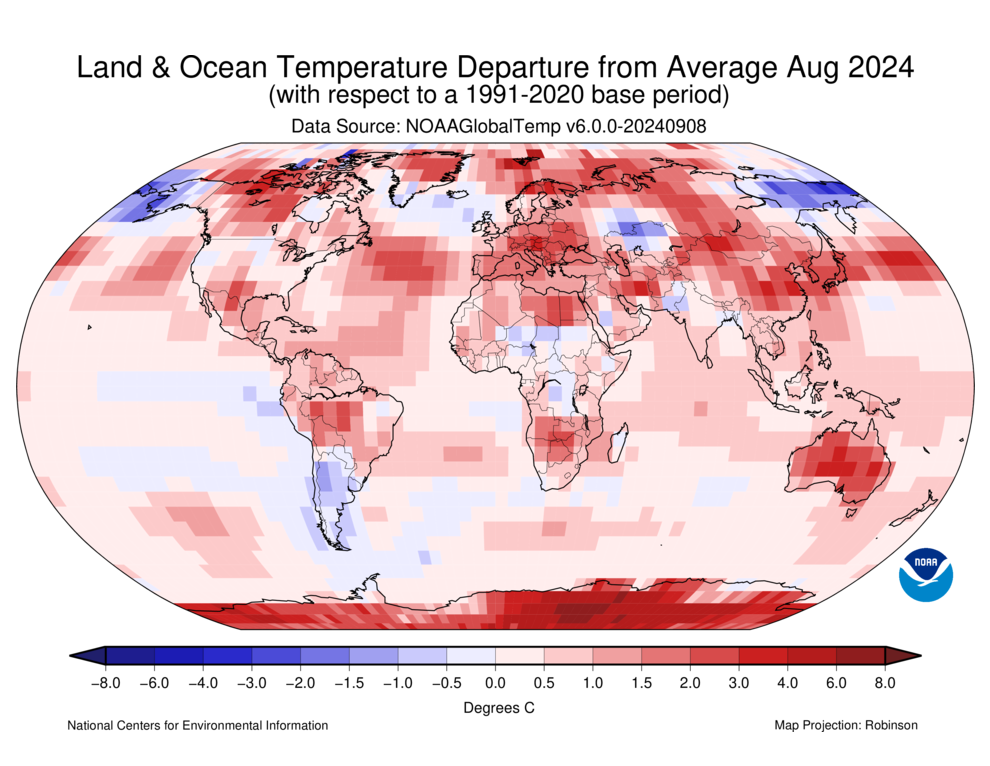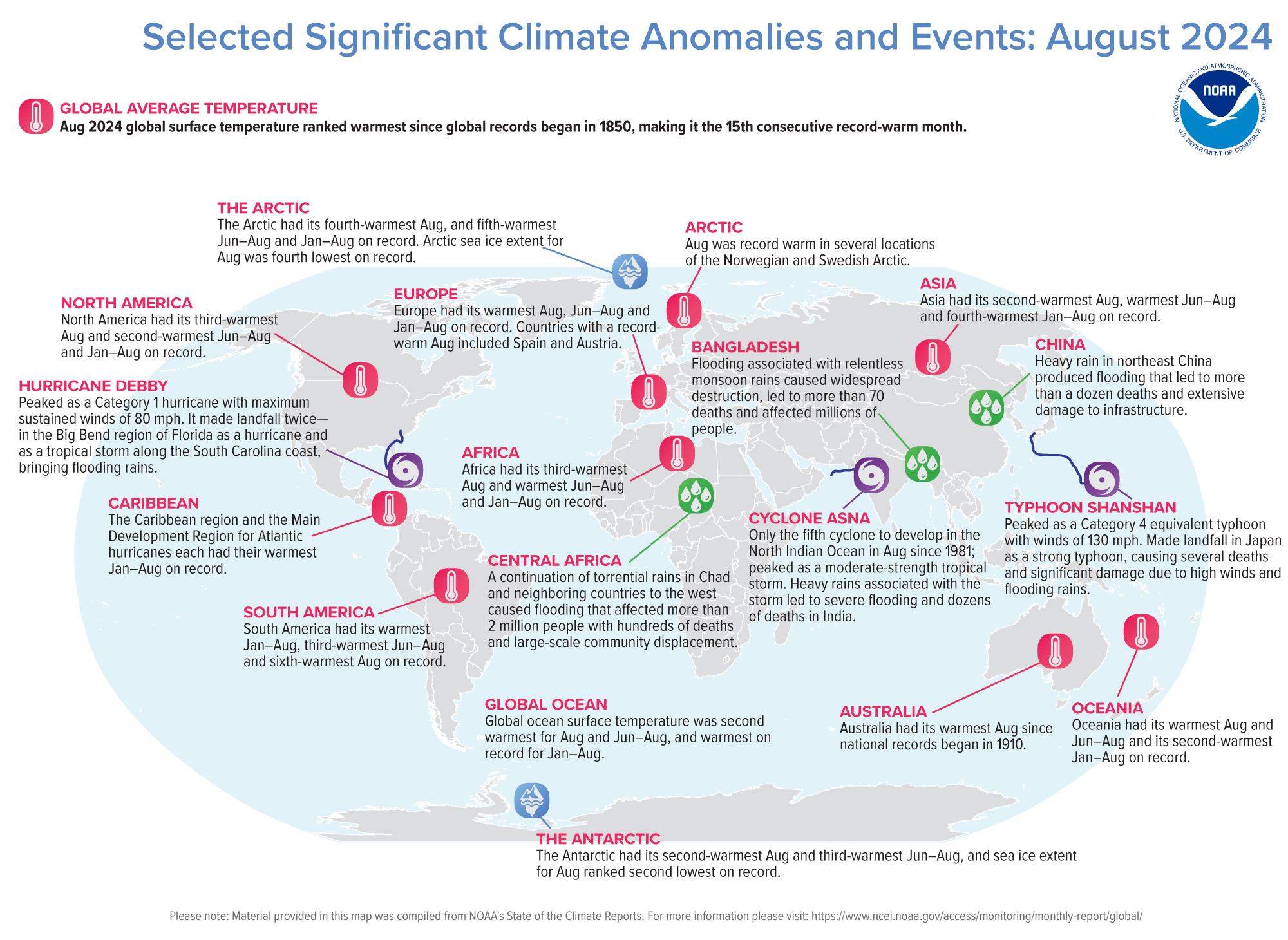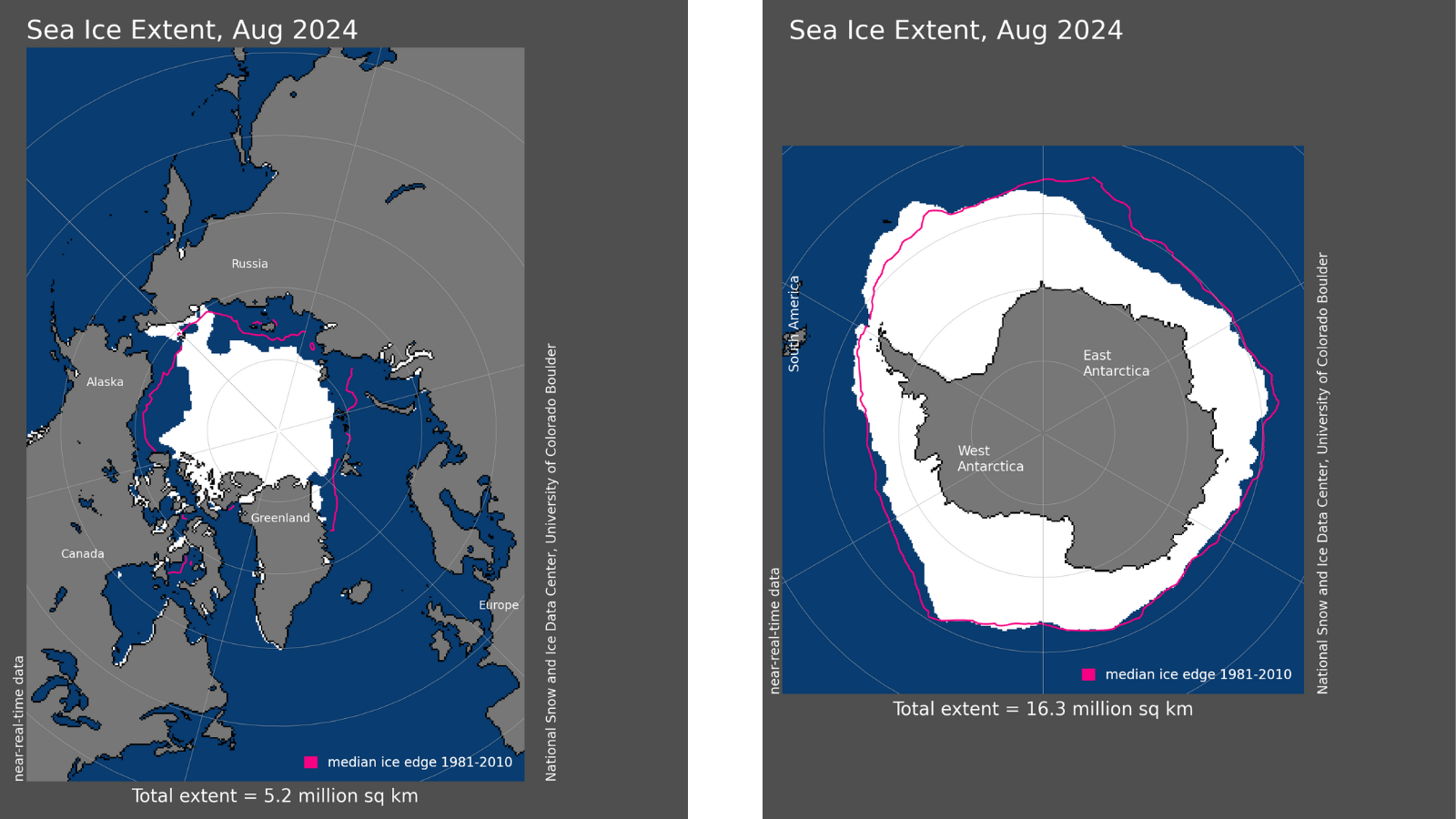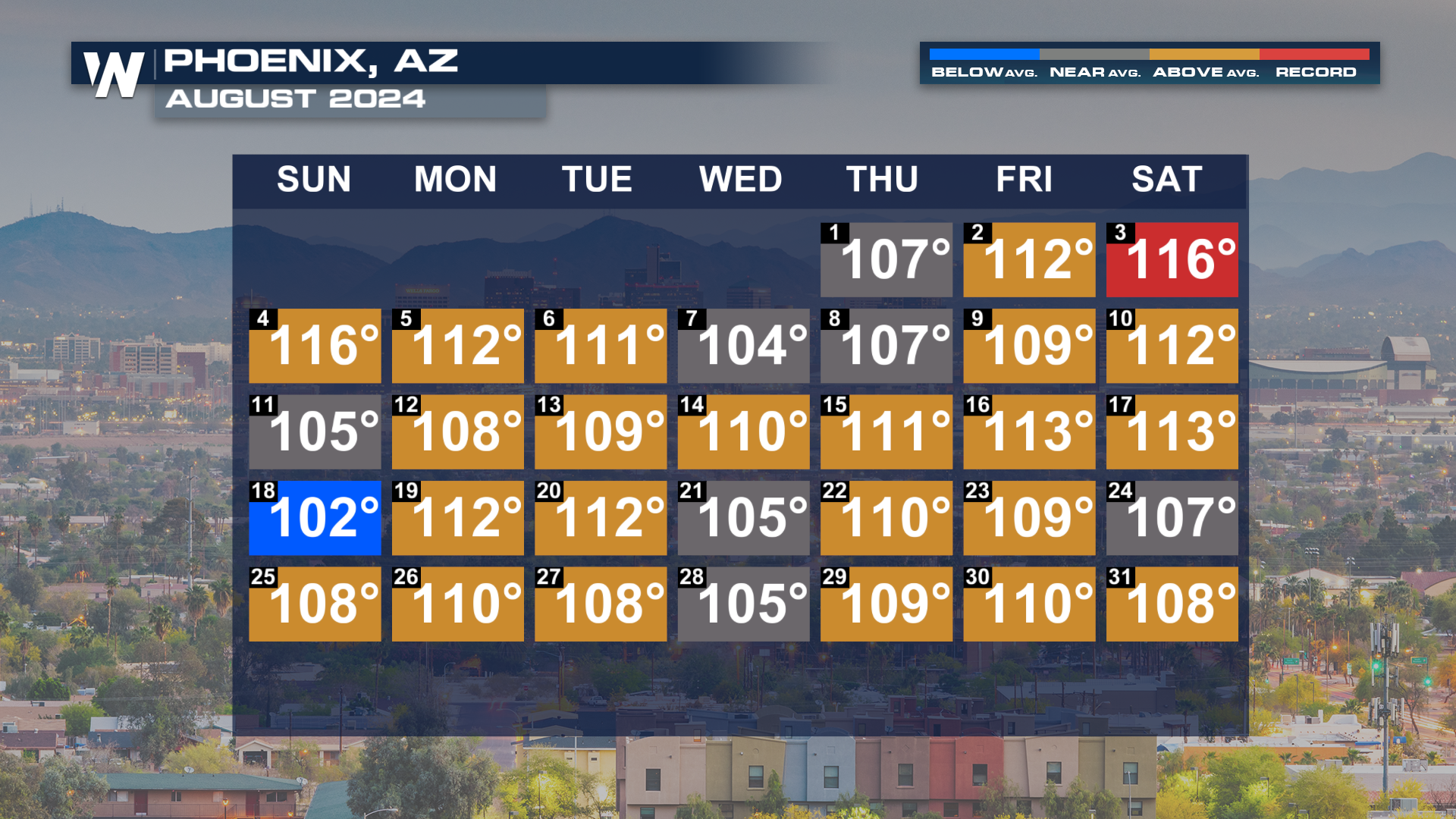Earth Experiences Hottest August in 175-Year Record
According to the National Oceanic and Atmospheric Administration, global temperatures continue to soar, with August 2024 marking the hottest in 175 years of recorded history. August 2024 has also been the 15th month of record warm months. This milestone follows the Northern Hemisphere’s warmest meteorological summer on record.

(Image credit: NOAA/NCEI)
Data released by NOAA highlights that August saw global temperatures exceed previous records by a significant margin. The average global land and ocean surface temperature in August was 2.29 degrees F above the 20th-century average of 60.1 degrees F. The month was not only the hottest August on record but also stands out for the persistent heat across all continents and oceans.
Unprecedented Heat in the Northern Hemisphere
The Northern Hemisphere has significantly felt the worst part of these extreme impacts. Summer 2024, which includes June, July, and August, has surpassed the previous temperature record. This makes it the warmest season experienced since record keeping. The months combined were 2.74 degrees F above average. This record-breaking heatwave brought significant impacts, from wildfires burning over 6 million acres in North America. Europe has experienced prolonged droughts in regions across Asia and Africa. Asia had its second-warmest August, while Africa and North America had their third warmest August.
 (Image credit: NOAA/NCEI)
(Image credit: NOAA/NCEI)
The Impacts
Beyond the immediate discomfort of the heat, the steadily rising trend of rising global temperatures does have a lasting impact. Ecosystems are stressed, and sea ice continues to melt faster, leading to rising sea levels, and ultimately threatening coastal communities. According to NOAA, Sea ice across the globe was the second smallest in the 46-year record, at 8.32 million square miles (about the area of North America), and Arctic sea ice was below average, with the fourth lowest on record.
 (Image credit: NOAA/NCEI)
(Image credit: NOAA/NCEI)
When it comes to the increased temperatures and the tropics, August was average with 15 named storms, with Debby and Ernesto forming in August.
 Specifically, in the U.S., Phoenix, Arizona, shattered its record with over 30 consecutive days of temperatures exceeding 110°F. The soaring heat, combined with a lack of rainfall, has also triggered widespread wildfires, which are ongoing in the west.
Specifically, in the U.S., Phoenix, Arizona, shattered its record with over 30 consecutive days of temperatures exceeding 110°F. The soaring heat, combined with a lack of rainfall, has also triggered widespread wildfires, which are ongoing in the west.
 The summer of 2024 has left its mark on the records!
The summer of 2024 has left its mark on the records!